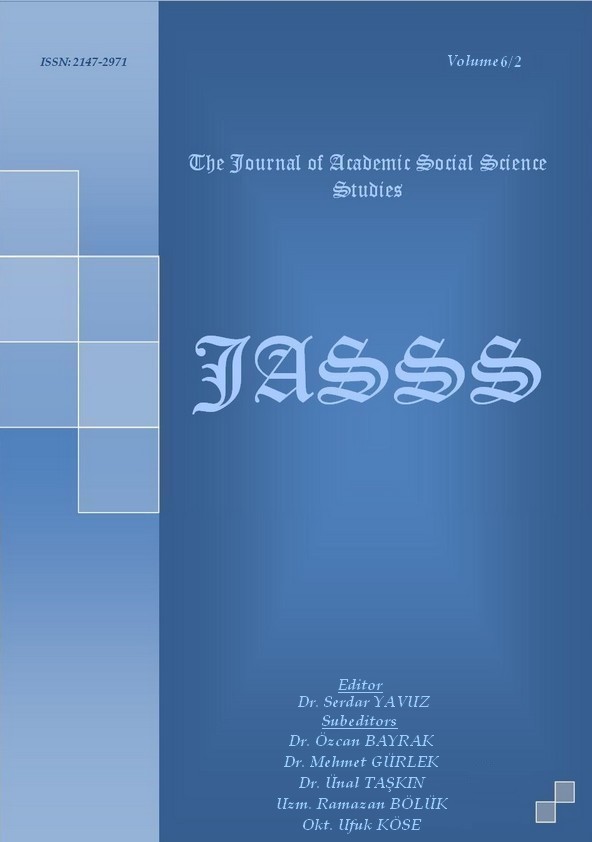Author :
Abstract
Ülkeyi yabancı sermayenin baskı ve sömürüsünden kurtarmak, yerli bir burjuva sınıfı oluşturarak ulusal ekonomiyi güçlendirmek politikası İttihat ve Terakki Partisi’nden devralınan bir politikaydı. Cumhuriyet’in kurucu önder kadrosu da bu politikayı kararlılıkla devam ettirdi. Yeni rejimin kurulmasından hemen sonra bu konuda bir takım yasal düzenlemelere gidildi. Sermaye birikimini sağlamak için bir yandan öncelikle yerli ürünlerin tüketilmesi propagandası yapılırken, öte yandan halkta tasarruf bilinci ve alışkanlığı oluşturulmaya çalışıldı. Kapitalist dünyanın küresel ölçekte yaşadığı ilk büyük kriz olan 1929-1930 Dünya Ekonomi Krizi ise Türkiye’nin daha önceden başlattığı tüketimden kısmak ve yerli ürünlere yönelmek politikasını daha önemli bir hale getirdi. İthalatta ciddi kısıtlamalara gitmek dışında, yerli ürünleri tüketmek konusunda adeta bir seferberlik ilan edildi. Bu amaçla çeşitli yasal ve kurumsal düzenlemelere gidildi. Günümüzde önemini tamamen kaybetmekle birlikte her yıl 12-18 Aralık tarihleri arasında ilkokullarda kutlanmaya başlanan “Tasarrruf ve Yerli Malı Haftası” bu dönemde oluşturulmaya çalışılan ulusal ekonomi politikasının bir ürünüdür. Ayrıca dönemin basınında, çocuk dergilerinde ve çeşitli konularda eğitsel amaçlı yazılan çocuk piyeslerinde yerli malı kullanma ve tasarrufta bulunarak ulusal ekonomiye katkıda bulunma düşüncesi etkili bir biçimde işlenmeye başladı. Bu araştırmada, özellikle 1930’lu yıllar boyunca tasarruf yapma ve yerli ürün tüketme politikasının, özellikle çocuk piyesleri/temsilleri aracılığı ile nasıl etkin bir biçimde uygulandığı ortaya konmaya çalışılmıştır.
Keywords
Abstract
The policy of building up a domestic bourgeois class and strengthening the national economy in order to save the country from the pressure and exploitation of the foreign capital, was a policy that had been taken over from the Committee of Union and Progress. The establisher leader team of the Republic carried on this policy with determination. Some legal regulations were made related to this issue right after the new regime was established. While consuming domestic goods was encouraged on one hand, saving consciousness and habits were tried to be created on the other, to ensure the capital formation. The 1929-1930 World Economic Crisis, which was the first global crisis of the capitalist world, made the policy of shifting to domestic goods and reducing consumption more important, which Turkey had already started. Mobilization was declared on consuming domestic goods, aside from serious import cuts. Various legal and institutional regulations were made for this reason. Although it lost its importance totally today, “Savings and Domestic Goods Week” had started to be celebrated in the primary schools between December 12-18, which had been a product of the policy of national economy that was tried to be formed. Also, using domestic goods and the idea of making a contribution to national economy by saving were developed in the media of the time, in children’s magazines and in children’s plays written with educational purposes on various subjects. In this research it was tried to be revealed how the policy of saving and consuming domestic goods was implemented efficiently, especially through children’s plays/dramas during 1930s.
Keywords
- GÜNDÜZ, Aka, Gazi Çocukları İçin, Milli İktisat ve Tasarruf Cemiyeti, Ankara 1933. AKTAN, Reşad, Türkiye İktisadı, C:1, Ankara, 1968.
- BOYACIOĞLU, Levent, “Tek Parti Döneminde İnkılap Temsilleri-I”, Tarih ve Toplum, S.: 102, (Haziran 1992).
- DOĞDU, Mustafa, Tek Parti Döneminde Ülkemizdeki Çocuk DergilerindeYurttaşlık Bilincinin Oluşturulması, Dokuz Eylül Üniversitesi Eğitim Bilimleri Enstitüsü, Yayınlanmamış Yüksek Lisans Tezi, İzmir 2007.
- DUMAN, Doğan, Ulusal Ekonominin Yapılanmasında Yerli Malı Haftaları, Dokuz Eylül Yayınları, İzmir 2000.
- DUMAN, Doğan, “Yerli Malı Haftaları”, Tarih ve Toplum, S.: 111, (Mart 1993).
- DUMAN, Doğan, 1930’larda Ekonomideki Korumacılık Politikasının Okullardaki Yansımaları”, Toplumsal Tarih, S.: 40, (Nisan 1997).
- DUMAN, Doğan, Milli İktisat ve Tasarruf Cemiyeti, Dokuz Eylül ÜniversitesiAtatürk İlkeleri ve İnkılap Tarihi Enstitüsü, Yayınlanmamış Yüksek Lisans Tezi, İzmir 1990.
- İNAN, Afet, Devletçilik İlkesi ve Türkiye Cumhuriyeti’nin Birinci Sanayi Planı, Türk Tarih Kurumu Yayınları, Ankara 1972.
- TEKELİ, İlhan –İLKİN, Selim, 1929 Dünya Buhranında Türkiye’nin İktisadi Politika Arayışları, ODTÜ Yayınları, C.:2, Ankara 1983.
- YAZMAN, M. Öğüt, Türkiye’nin Ekonomik Gelişmesi, 2. baskı, Ankara 1974.
- ZARAKOLU, Avni, “1929/30 Dünya Ekonomik Krizi Karşısında Türk Ekonomisi veKrizle Alınan Mücadele Tedbirleri”, Atatürk Dönemi Ekonomi Politikası veTürkiye’nin Ekonomik Gelişmesi Semineri, Ankara Üniversitesi SBF Yayınları, Ankara 1982.





